MercoPress. South Atlantic News Agency
Tag: economy
-
Thursday, March 12th 2020 - 07:40 UTC
Brazil February inflation, 0,25%, the lowest since the same month in 2000

Brazilian inflation rose more than expected in February, official figures showed on Wednesday, although the monthly increase was still the lowest for any February in 20 years.
-
Tuesday, March 10th 2020 - 07:36 UTC
Italy in self-imposed quarantine: highest coronavirus death toll in the world after China

All of Italy under lockdown, reeling financial markets, and rioting prisoners made clear on Monday how the global coronavirus epidemic was extending its reach into all aspects of social and economic life.
-
Wednesday, March 4th 2020 - 07:18 UTC
US Treasury Secretary Mnuchin strongly supported Fed's decision to cut rates
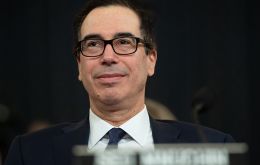
United States Treasury Secretary Steven Mnuchin told lawmakers on Tuesday that he supported the Federal Reserve’s decision to cut rates in a bid to support the economy amid the coronavirus outbreak.
-
Wednesday, March 4th 2020 - 06:58 UTC
Fed emergency intervention to address potential economic toll of the coronavirus outbreak
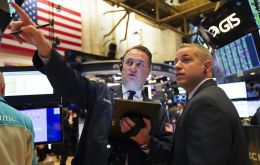
The Federal Reserve on Tuesday cut interest rates amid concern about the potential economic toll of the coronavirus outbreak. The Federal Open Market Committee (FOMC), which sets Fed interest rates, announced it would cut its baseline rate range by 0.5 percentage points to a 1 to 1.25 percent spread.
-
Thursday, February 27th 2020 - 07:57 UTC
Mild recovery of Argentine industrial activity during January
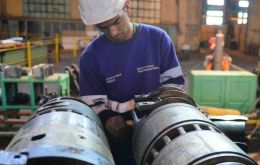
The argentine industrial activity stopped sliding last January after two full years of contraction and managed a 4.8% growth over a year ago, according to the latest review of the industry by the Foundation of Latin American economic research, FIEL. However, the overall Industrial Production Index ended the twelve months of 2019 with a 4.6% fall compared to 2018.
-
Thursday, February 20th 2020 - 18:14 UTC
Brazilian currency again slips to a record low against the US dollar

Brazil’s real posted a record low close against the dollar for a second straight day on Wednesday, after earlier sliding to within less than one centavo of its weakest-ever level as the weight of selling pressure built up on several fronts.
-
Tuesday, February 18th 2020 - 06:32 UTC
FT: “Argentina needs a plan for investment-led growth”

The Financial Times dedicated on Monday an editorial to Argentina and its current strategy to avoid again defaulting by pressing on the IMF, and later on sovereign bondholders, for a significant haircut in its national debt approaching 90% of GDP. However, FT points out that “debt talks are unlikely to succeed without a strategy for economic revival”
-
Thursday, February 13th 2020 - 10:08 UTC
Brazilian economic model is changing, “lower interest rates and a weaker Real”
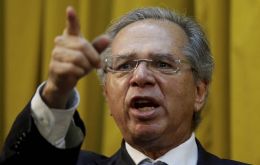
Brazilian Economy minister Paulo Guedes said that the economic model has changed and no long is made up of high interest rates and a strong Real. His comments follow concerns that the exchange rate of the Real against the US dollar has been increasing sustainedly for the last few days.
-
Monday, February 3rd 2020 - 07:40 UTC
Massive injection of liquidity in China to help counter economic effects of the epidemic
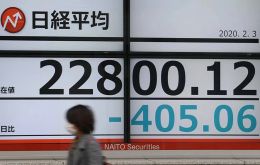
China's central bank said it will inject 1.2 trillion Yuan (US$ 174 billion) worth of liquidity into the markets via reverse repo operations on Monday as its stock markets prepare to reopen amid an outbreak of a new coronavirus.
-
Friday, January 31st 2020 - 08:35 UTC
Mexican economy contracted in 2019, first time in a decade; 2020 prospects weak

Mexico’s economy contracted last year for the first time in a decade, data showed on Thursday, as businesses curbed investment due to concern over the economic management of President Andres Manuel Lopez Obrador, and forecasts for 2020 are also weak.
